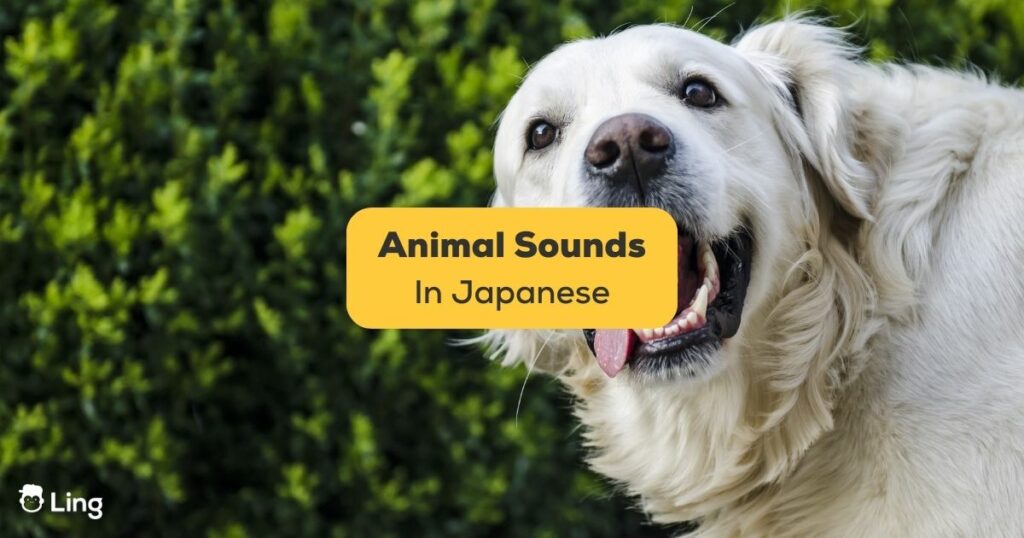In the linguistic world, every language has its own unique way of imitating the sounds made by animals. These onomatopoeic expressions not only add color to a language but also provide insight into the culture and environment of a region.
In this article, we will learn words for Japanese animal sounds, exploring how they reflect the deep connection between the Japanese people and their natural surroundings.
Understanding Japanese Onomatopoeia
Japanese is a language rich in onomatopoeic expressions. These Japanese words mimic the sounds they represent, making them an integral part of everyday conversation. In the context of animals, Japanese onomatopoeia is not limited to just replicating sounds; it often captures the essence and behavior of the creatures themselves.
Animal noises in Japanese are not confined to domestic animals like cats and dogs. They extend to wild creatures, birds, and even insects. Each sound paints a vivid picture of the animal’s characteristics and actions, making it a truly unique aspect of the language.

Japanese Animal Sounds
1. Cats: Nyan-Nyan (にゃんにゃん)
When it comes to cats, most languages use a simple “meow” to describe their vocalizations. However, in Japanese, “nyan-nyan” goes beyond a mere meow. It encapsulates the playful and sometimes demanding nature of these feline companions.
2. Dogs: Wan-Wan (わんわん)
While English might stick with “woof” or “bark” for dog’s bark, “wan-wan” in Japanese encompasses the various sounds dogs make. It can signify excitement, happiness, or even a warning bark, adding depth to the communication between humans and their loyal canine friends.
3. Roosters: Kokekoko (こけここ)
In many cultures, the rooster’s crow signifies the break of dawn. In Japan, “kokekoko” echoes through the countryside, marking the start of a new day with its unique rhythm, awakening both humans and other animals. It’s better than “cock a doodle doo”, isn’t it?
4. Elephants: Zou-Zou (ぞうぞう)
Japanese animal sounds aren’t limited to domestic and smaller animals. Even the mighty elephant has its own onomatopoeic expression, “zou-zou.” This sound evokes the slow, majestic movements of these massive creatures.
5. Pigs: Bu-Bu (ぶーぶー)
Pigs are often associated with the classic “oink oink” sound in English. However, in Japan, they are playfully represented as “bu-bu,” a charming and endearing expression of their snorting sounds.
6. Cows: Moo-Moo (もーもー)
Cows, known for their docile nature, have their vocalizations represented as “moo-moo” in Japanese, the same as their actual sound. This sound represents the serenity of these animals as they graze in the countryside.
7. Goats: Mee-Mee (めぇめぇ)
Goats, the denizens of hilly terrains, have their sounds represented as “mee-mee” in Japanese. This onomatopoeic expression reflects their distinct bleating calls echoing through the mountains.
8. Foxes: Kon-Kon (こんこん)
Foxes, with their cunning reputation, are represented as “kon-kon” in Japanese. This intriguing animal sound adds to the enigmatic aura that surrounds these creatures in Japanese folklore.
9. Chickens: Ko-Ko-Ko-O (こーこーこーお)
Chickens, the quintessential farm animals, greet the morning with a hearty “ko-ko-ko-o” in Japan. This distinctive sound is synonymous with the start of a new day in rural settings.
10. Chicks: Pi-Pi (ぴーぴー)
The softer sounds of baby chicks are delightfully represented as “pi-pi” in Japanese. This expression encapsulates their small size and cheerful chirping.
11. Frogs: Gero-Gero (げろげろ)
Frogs are often associated with rainy weather, and in Japanese, their croaking sounds are described as “gero-gero.” This onomatopoeic expression adds to the ambiance of a rainy day.
12. Horses: Hi-Hi-In (ひーひーん)
Horses, known for their elegance and power, are represented as “hi-hi-in” in Japanese. This Japanese sound mirrors the grace of their galloping hooves.
13. Donkeys: Hee-Haw (ひーひょっとこ)
Donkeys, often found in rural settings, are depicted with the onomatopoeia “hee-haw” in Japanese. This robust sound captures the rugged charm of these hardworking animals.

About Animal Sounds In Japanese Onomatopoeia
Are Japanese animal sounds only used in spoken language?
No, they are also incorporated into various forms of Japanese art and literature, adding depth and symbolism to these creative works.
Do all animals have specific onomatopoeic expressions in Japanese?
While many animals have dedicated onomatopoeia, some may not, and in such cases, generic sounds might be used.
Are Japanese animal sounds easy for foreigners to understand?
Understanding these sounds might require some familiarity with Japanese culture and the associated animals, but they can be appreciated by anyone.
Do these onomatopoeic expressions change over time?
Yes, language is constantly evolving, and some Japanese onomatopoeia may adapt or change in usage over generations.
Are there any modern applications of Japanese animal sounds?
Yes, they are sometimes used in advertising, cartoons, and even as ringtone options, adding a touch of whimsy to daily life.
Explore the enchanting world of Japanese animal sounds and discover how they add a unique layer to the country’s language and culture.
Conclusion
In the world of linguistics, Japanese animal sounds stand out as a unique and rich aspect of the language. They not only mimic the noises animals make but also convey the essence of the creatures themselves. These onomatopoeic expressions serve as a beautiful reminder of the deep connection between the Japanese people and the natural world that surrounds them.
Start Learning Japanese With Ling!
Ling offers you a unique experience, where you can access hundreds of gamified activities that will allow you to learn Japanese while having fun. So make the most of your time with bite-size lessons you can complete in 10 minutes.
Want to further enhance your skills? Combine your Ling lessons with our weekly Japanese blog posts about Japanese language and culture, where you can learn vocabulary, grammar, and everything you need to speak Japanese like a pro.
Download Ling for free from the App Store or Play Store and connect through language!



































































